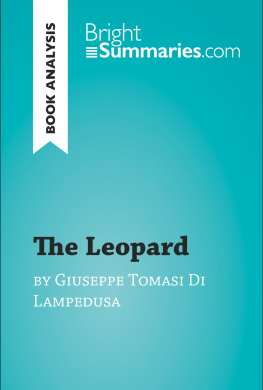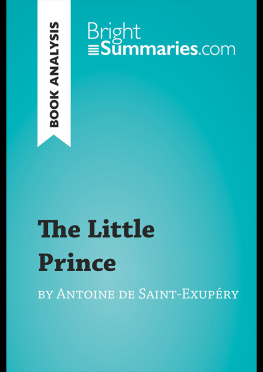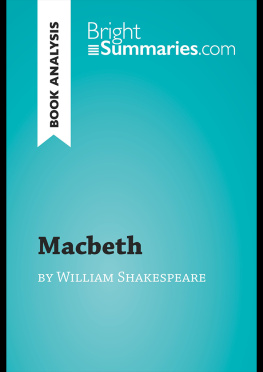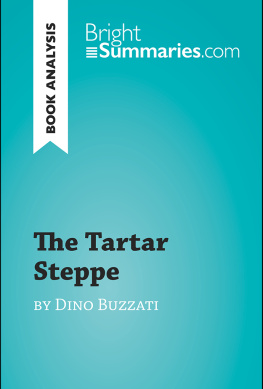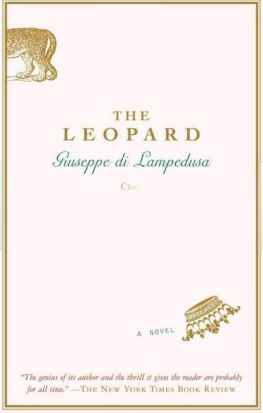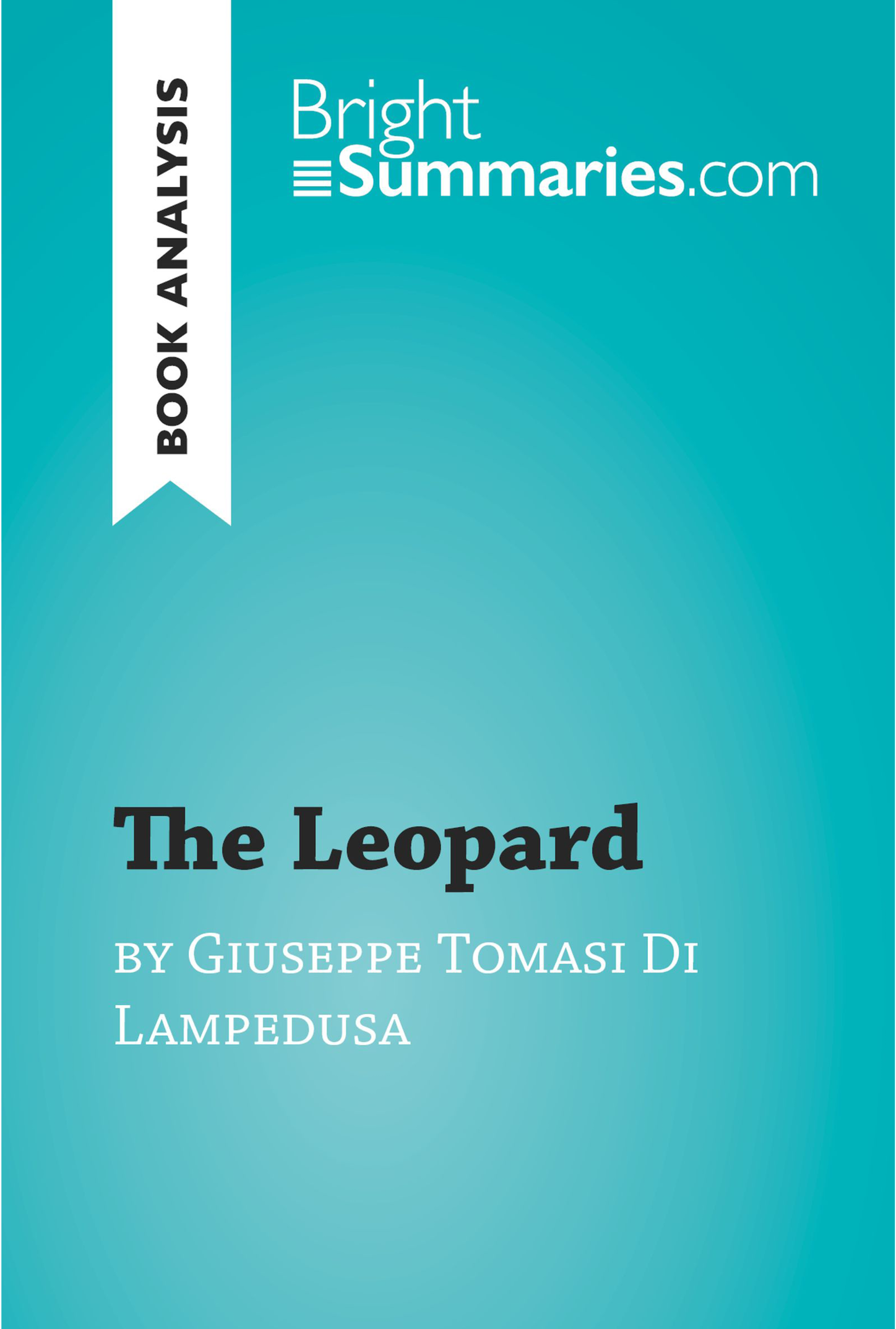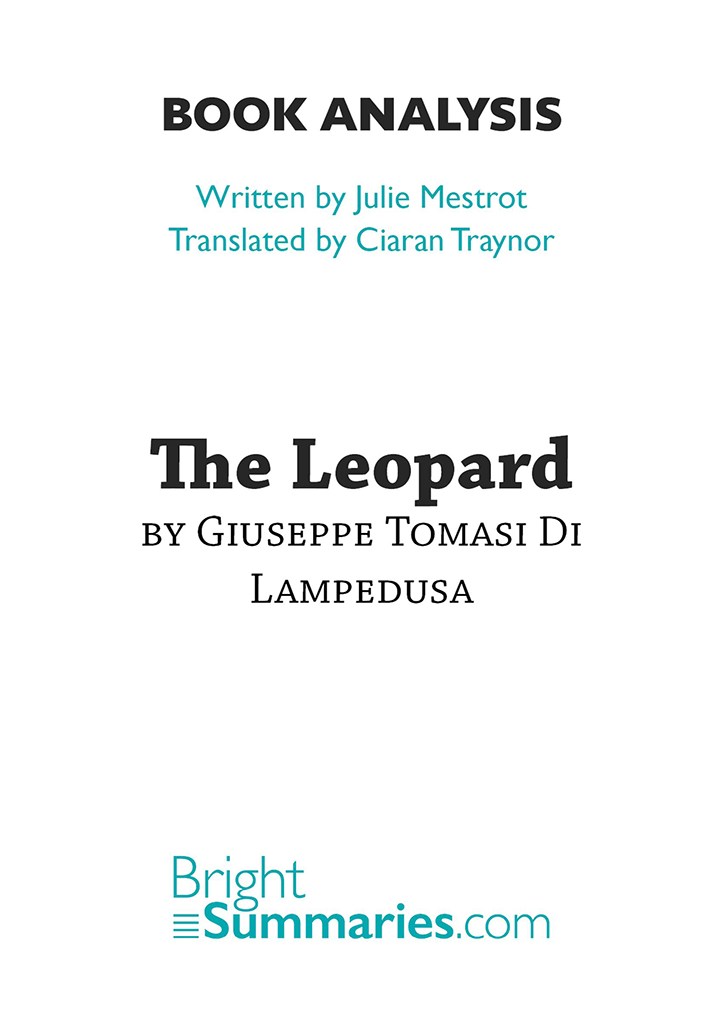Bright Summaries - The Leopard by Giuseppe Tomasi Di Lampedusa (Book Analysis): Detailed Summary, Analysis and Reading Guide
Here you can read online Bright Summaries - The Leopard by Giuseppe Tomasi Di Lampedusa (Book Analysis): Detailed Summary, Analysis and Reading Guide full text of the book (entire story) in english for free. Download pdf and epub, get meaning, cover and reviews about this ebook. year: 2016, publisher: BrightSummaries.com, genre: Detective and thriller. Description of the work, (preface) as well as reviews are available. Best literature library LitArk.com created for fans of good reading and offers a wide selection of genres:
Romance novel
Science fiction
Adventure
Detective
Science
History
Home and family
Prose
Art
Politics
Computer
Non-fiction
Religion
Business
Children
Humor
Choose a favorite category and find really read worthwhile books. Enjoy immersion in the world of imagination, feel the emotions of the characters or learn something new for yourself, make an fascinating discovery.
- Book:The Leopard by Giuseppe Tomasi Di Lampedusa (Book Analysis): Detailed Summary, Analysis and Reading Guide
- Author:
- Publisher:BrightSummaries.com
- Genre:
- Year:2016
- Rating:4 / 5
- Favourites:Add to favourites
- Your mark:
The Leopard by Giuseppe Tomasi Di Lampedusa (Book Analysis): Detailed Summary, Analysis and Reading Guide: summary, description and annotation
We offer to read an annotation, description, summary or preface (depends on what the author of the book "The Leopard by Giuseppe Tomasi Di Lampedusa (Book Analysis): Detailed Summary, Analysis and Reading Guide" wrote himself). If you haven't found the necessary information about the book — write in the comments, we will try to find it.
This engaging summary presents an analysis of The Leopard by Giuseppe Tomasi Di Lampedusa, which tells the story of the Salina family and their changing place in Sicilian society. The novel presents a sharply critical view of 19th century Sicilian society and, with the help of historical events and figures, charts the fall of the aristocracy and the rise of the bourgeoisie. First released in 1958, The Leopard had a long road to success: it was rejected by two major publishing companies before eventually being published. The author, Giuseppe Tomasi Di Lampedusa, was born in Palermo in 1896 to an aristocratic family. His first and only novel, The Leopard, was not published until after his death, and so he never saw its success and eventual status as the top-selling novel in Italian history.
Find out everything you need to know about The Leopard in a fraction of the time!
This in-depth and informative reading guide brings you:
- Character studies
- Key themes and symbols
- Questions for further reflection
Why choose BrightSummaries.com?
Available in print and digital format, our publications are designed to accompany you on your reading journey. The clear and concise style makes for easy understanding, providing the perfect opportunity to improve your literary knowledge in no time.
See the very best of literature in a whole new light with BrightSummaries.com!
Bright Summaries: author's other books
Who wrote The Leopard by Giuseppe Tomasi Di Lampedusa (Book Analysis): Detailed Summary, Analysis and Reading Guide? Find out the surname, the name of the author of the book and a list of all author's works by series.

